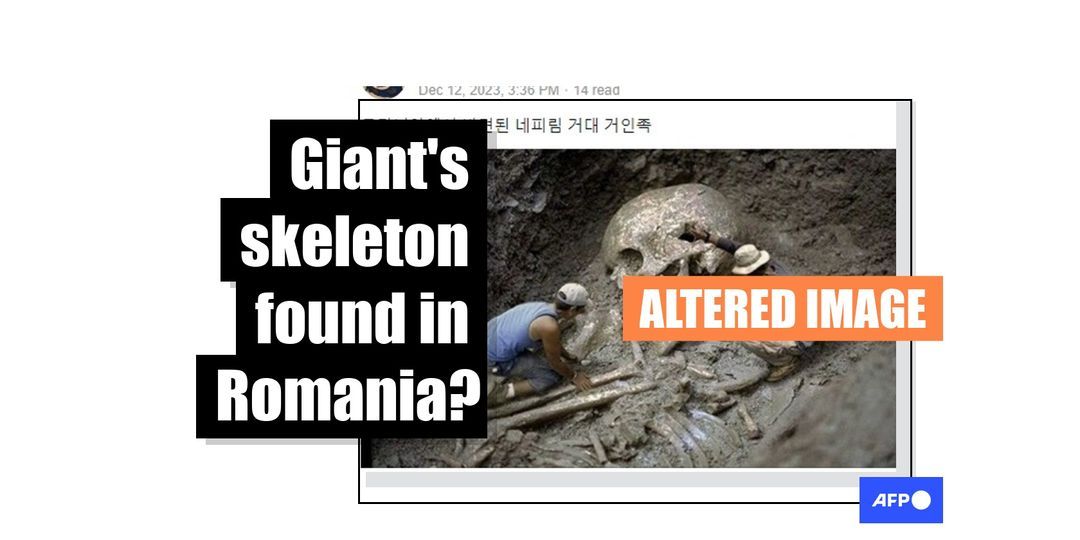
Korean-language social media posts have repeatedly shared a doctored image, claiming it shows an ancient giant’s skeleton discovered in Romania. The unaltered photo was taken by an AFP photographer in June 2008 and in fact shows a skeleton excavated from a sixth-century necropolis in France. The doctored picture was initially posted online as part of an image manipulation contest.
“Nephilim giant tribe discovered in Romania,” reads the Korean-language caption to the image posted here on Naver Band, a South Korean forum, on December 12, 2023.
There are several references to “Nephilim” in biblical mythology, according to The Jerusalem Post newspaper, and the word is sometimes translated as meaning “giant” (archived link).

The doctored image was also shared elsewhere on Naver Band here as well as on Facebook here, here and here, with some posts going as far back as 2016.
The supposed discovery of enormous skeletons, usually shared in posts alongside doctored images, have long been a popular hoax, and comments on the false posts suggest they continue to deceive many users (archived link).
“The world is large and there are so many eerie things, like this country of giants,” one user wrote.
“Extraordinary discovery,” another said.
Photoshop competition
A reverse image search on TinEye led to the same image submitted as an entry to a Photoshop content on the website DesignCrowd, formerly known as Wortb000 (archived link).
The contest’s rules, as displayed on the website, read: “You are to create an archaeological hoax. Your job is to show a picture of an archaeological discovery that looks so real, had it not appeared at Wortb000, people might have done a double take.”
Below is a screenshot comparison of the doctored image circulating online (left) and the contest entry (right):

The artist’s profile page specifies that the image was created with Photoshop on October 26, 2008 for the contest (archived link).
Before its acquisition by DesignCrowd, Wortb000 was a popular image sharing website that hosted image manipulation contests (archived link).
AFP has previously debunked claims involving images that were initially shared on the website, including here and here.
2008 excavation
A separate reverse image search on the Russian search engine Yandex found the unaltered image is an AFP photo taken in June 2008.

The caption says the photo shows a human skeleton excavated by French archaeologist David Billoin on June 11, 2008 from a sixth-century Merovingian necropolis in Echenoz-la-Méline, France.
Below is a screenshot comparison of the doctored image shared on social media (left) and the AFP photo (right):

Other photos taken by Pachoud capture archaeologists working at the site, and show the true scale of the remains.

The excavation at Echenoz-la-Méline has been well-documented in reports and posts in archaeology circles, as well as on the town’s website (archived links here, here and here).
